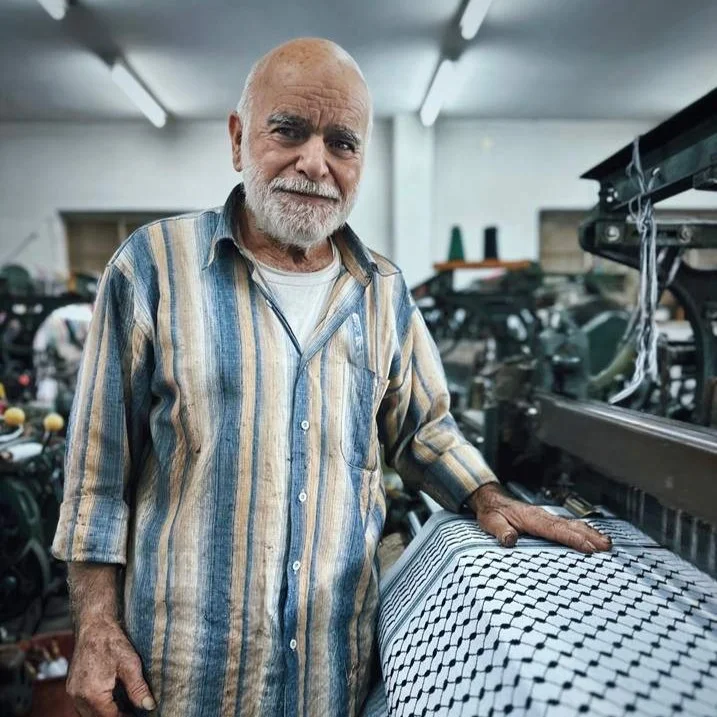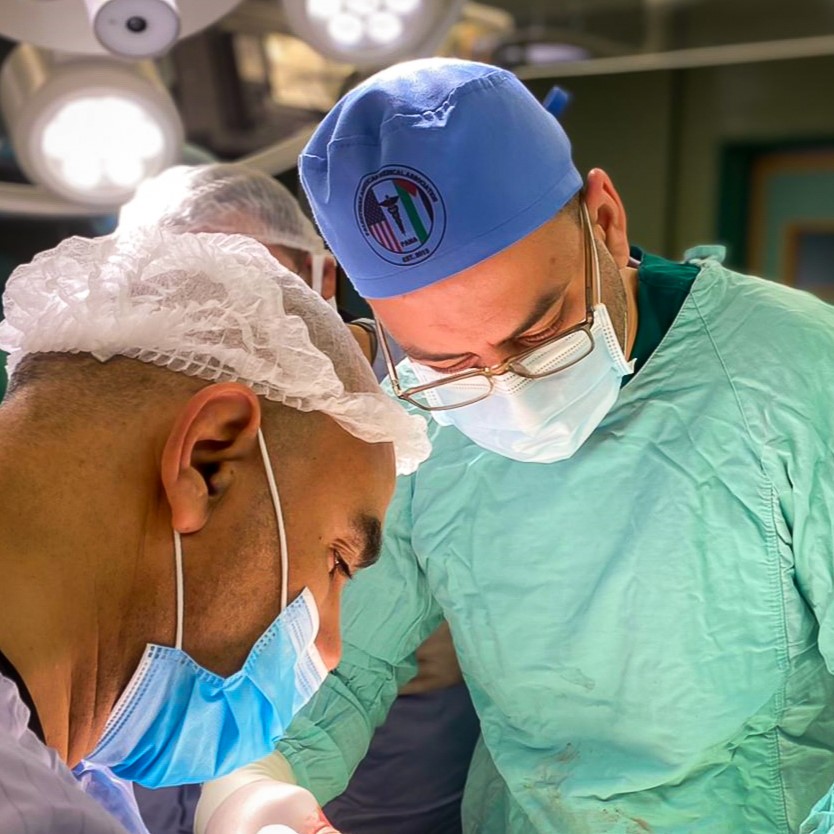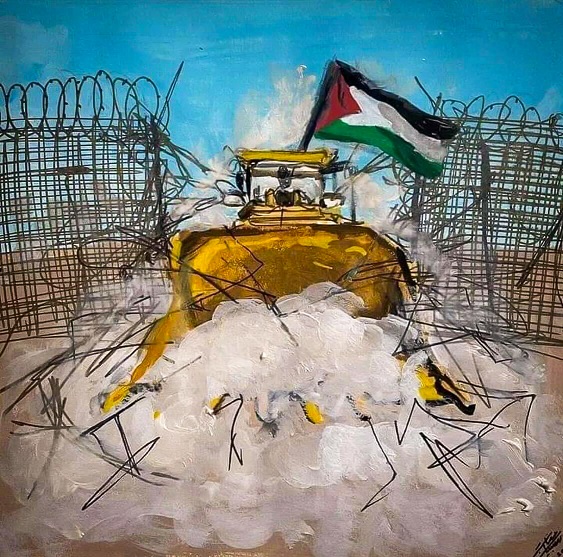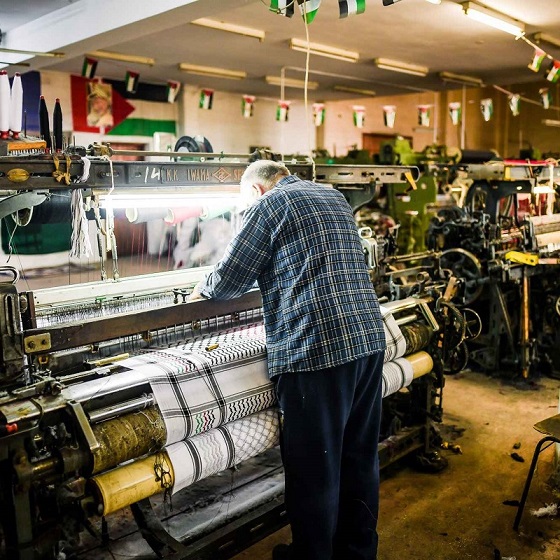The Untold Story of Palestinian Industry and the Struggle of Hirbawi Kufiya
As the world commemorates the 30th anniversary of the Oslo Accords, much of the focus is understandably on its political implications. However, we at the Hirbawi Factory wish to shed light on another, often-overlooked but equally significant aspect… the economic impact on Palestinian producers like ourselves.
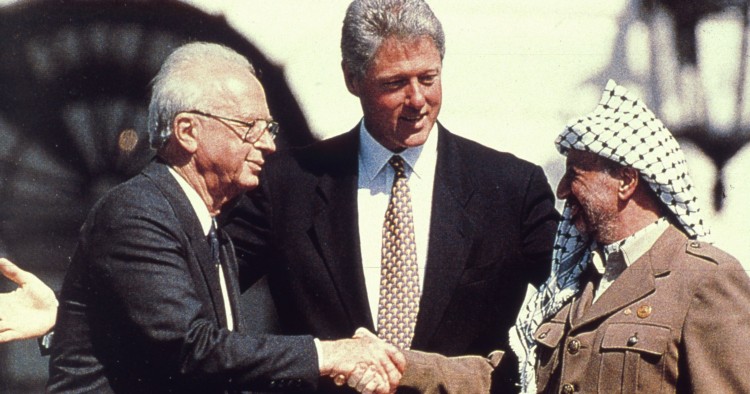
The Enduring Legacy of Hirbawi Kufiya
Our journey began in 1961 when Yasser Hirbawi established our factory with the aspiration to modernize the traditional Palestinian Kufiya. His expedition to Japan in the late 1950s led to the development of a specialized loom, uniquely capable of crafting the intricate patterns of the Kufiya. This technological innovation enabled us to meet the surging demand for high-quality Kufiyas while preserving their cultural essence. Throughout the ’90s, our looms operated ceaselessly, as we worked in shifts to meet the ever-growing demand.
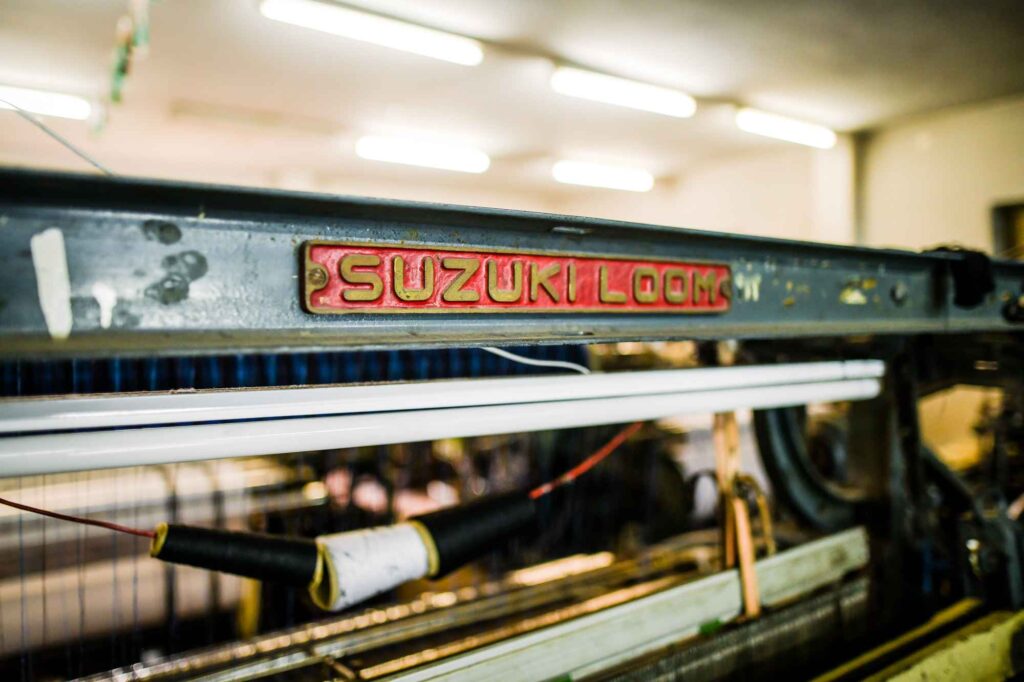
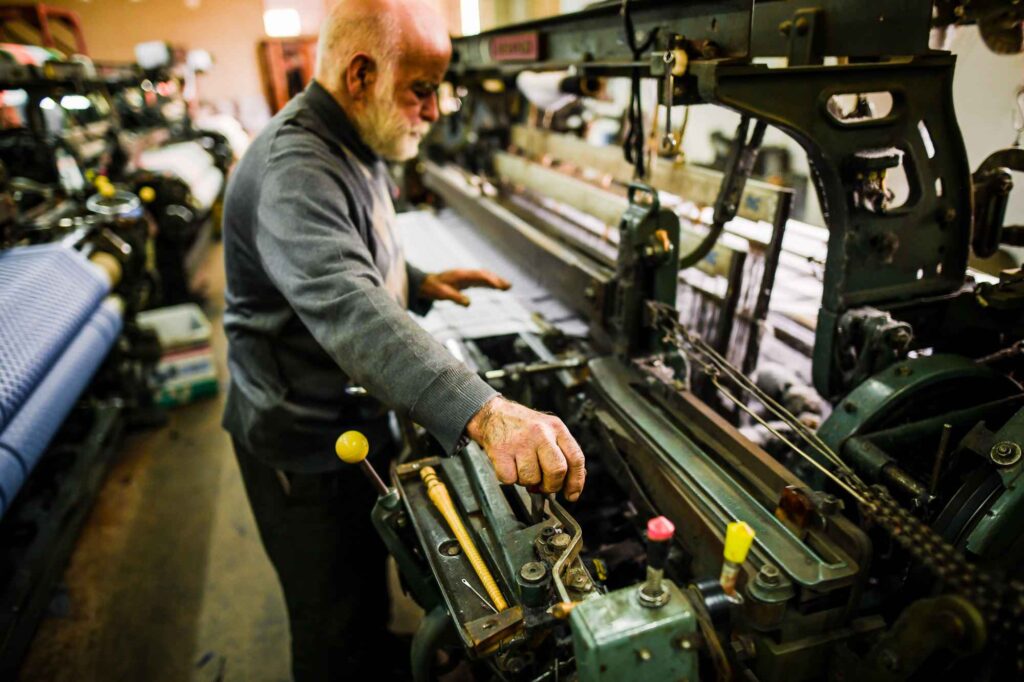
The Broken Promises of the Oslo Accords
Initially, the Oslo Accords were greeted with hope, promising an independent Palestinian state within a mere five years. However, that transitional period has now stretched into three decades. The subsequent Paris Protocol, intended to regulate economic relations, paradoxically opened the floodgates for cheap imports. This policy shift devastated local industries, from shoemaking and leatherwork to textiles and pottery. Far from offering a safety net, the Palestinian Authority exacerbated the situation by incentivizing these imports to secure stable customs revenue.
By the early 2000s, the closure of numerous Palestinian factories led to increased unemployment, compelling more Palestinians to seek work in Israel and deepening our dependency on the occupation. We at Hirbawi found ourselves as the last remaining Kufiya factory in Palestine. Our decision to continue production was fueled by a profound sense of pride and a commitment to preserving Palestinian traditions, even in the face of adversity.
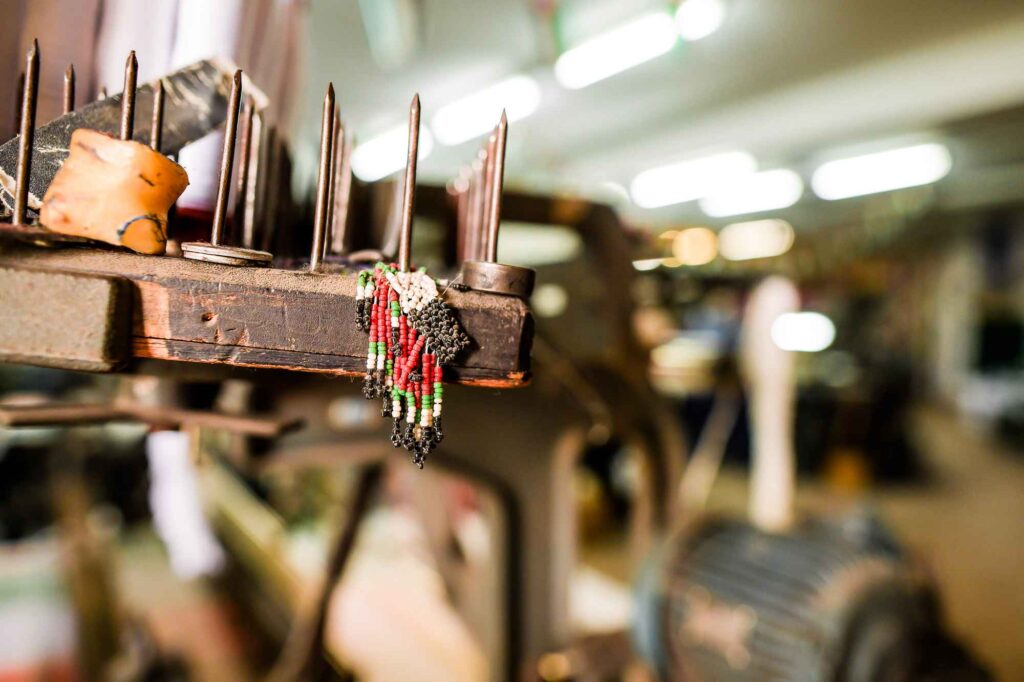
The Unseen Consequences: From Dependency to the Creation of Beauty
Over the years, the political and economic landscape has deteriorated, pushing us towards dependency on trade and international support, rather than fostering local production. But let’s set the record straight: We don’t seek charity; we aim to continue the artistry of crafting authentic Kufiyas.
Every day, we navigate the harsh and restricting realities of occupation to reach our factory. Yet, once inside, our imagination knows no bounds. We channel our creativity into designing Kufiyas that burst with colour and intricate patterns. It’s as if we’re compensating for the ugliness of occupation by producing beauty—vivid, resplendent beauty that we are proud to send from Palestine to wardrobes around the world. These Kufiyas are not just garments; they are a statement of resilience, a testament to cultural pride, and above all, a creation of beauty that transcends borders.
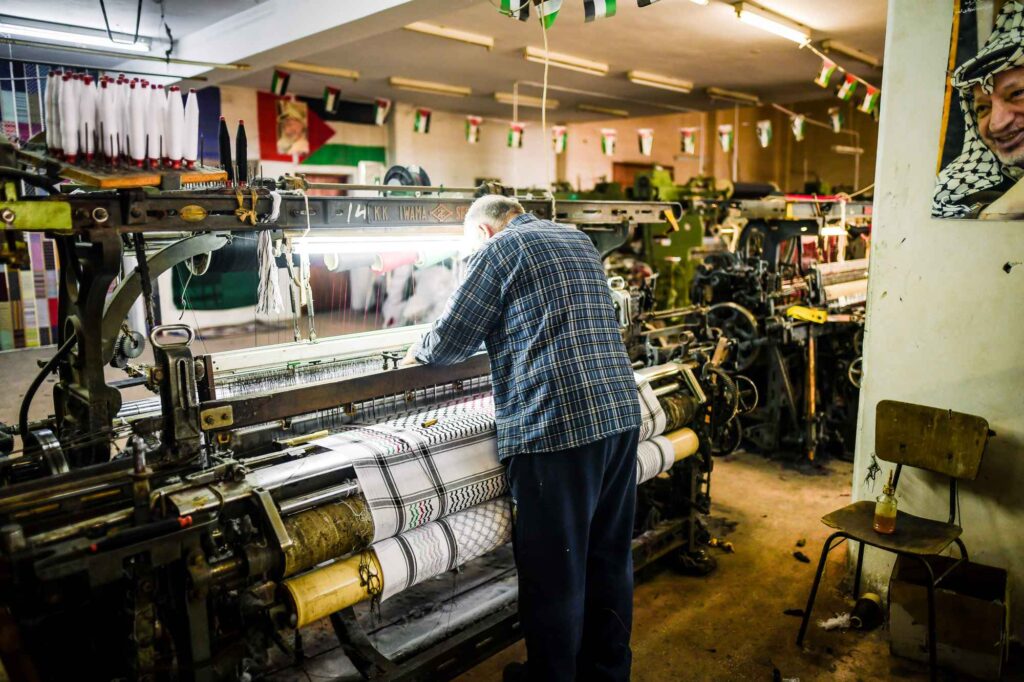
Looking Ahead: Our Vision for the Future
Our struggle has not gone unnoticed. YOUR support and media coverage, both local and international, has been instrumental in revitalizing our operations. We have ambitious plans to modernize our factory, ramp up production, and create more employment opportunities for Palestinians. We are committed to preserving the tradition of Kufiya production while embracing innovation and growth.
A Call to Action
We invite you to be part of our ongoing journey. Support us by purchasing directly from our official website kufiya.org or from one of our trusted distributors listed at www.hirbawi.ps. When you choose Hirbawi, you’re not merely acquiring a unique and meaningful garment; you’re also contributing to the resilience and empowerment of the Palestinian community.
In solidarity,
The Hirbawi Team
